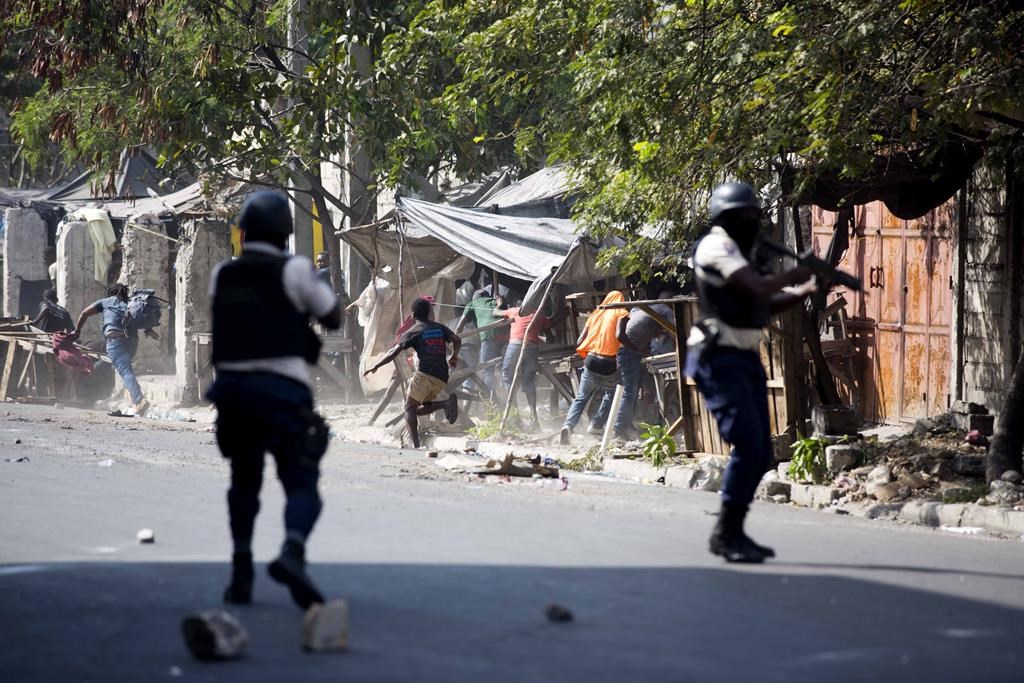After doing work for missionary group Haiti Arise, Wade and Marilyn Fitzpatrick are getting settled back into their home in Weyburn, Sask — a place to which they didn’t expect to return until June.

Over the weekend, they were among the 24 missionaries from the Alberta-based organization to leave Haiti due to the mass anti-government protests in the island nation.
WATCH: Protests in Haiti turn deadly

“Haiti often has low-level unrest. It’s pretty common; that’s part of life there,” Marilyn explained. “Up until 10 days ago it really hasn’t been bad enough to affect what we’re doing.”
Protestors have set up blockades along Haiti’s national highway, stopping the transport of goods like food, water and fuel. These protests are taking place due to allegations of mass government corruption and difficulty accessing essentials.
Haiti Arise’s compound is off the main highway in a rural area. It’s a secure facility, but the protests meant those living there could not access resources.
“We just couldn’t move and nothing could move,” Wade said, “so there’s a very fast disintegration of ability to live.

Get daily National news
“Water, food, diesel power — all those things are just kind of going away.”
Due to the blockades, the group paid close to $7,000 to hire a helicopter to transport the 24 missionaries to the airport.
The Fitzpatricks act as team hosts for Haiti Arise, helping mission groups learn about the local culture and complete their tasks. The group has about 15 ministry teams that do a variety of jobs, including construction, working with at-risk children, and providing medical services.
“We originally weren’t planning on leaving, but as the situation disintegrated quite quickly at the end of last week we thought we should leave as well for a while,” Marilyn said.
While the Fitzpatricks are thankful to be back home in Canada, they’re conflicted.
“Well, it’s quite sad, because we get to leave and we’re the lucky ones,” Wade said.
“We get to fly away, but there are lots and lots of people now who can’t get water, and can’t get food and can’t get cooking fuel and can’t get medicine because everything is shut down.”
As of Feb. 19, Global Affairs Canada is advising against all travel to Haiti. Because of this, the Fitzpatricks will have to wait until the situation improves before they can return. This is because they will not be able to get travel insurance with the current advisory.
A Haiti Arise medical team is scheduled to make the trip in the spring, but that may have to be postponed if the situation doesn’t improve.
“I feel bad for the Haitian people. There’s 11 million people living on a dot about one-25th the size of Saskatchewan, and they’re hungry and they’re mad and they’re thirsty. It’s a tough spot for them, for sure,” Wade said.
“All they want is just the basics of life and they want to be able to raise their families in a healthy way and have them educated. So they’re really not asking for anything extraordinary. They’re just wanting basics,” Marilyn added.











Comments